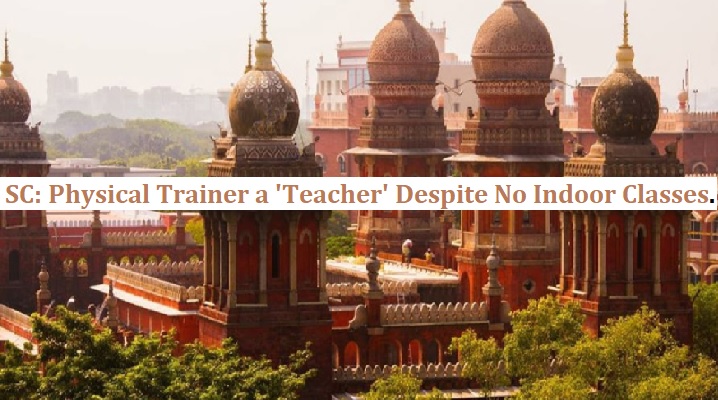


On December 13, the Supreme Court rendered a significant observation, asserting that the role of a Physical Training Instructor (PTI) should be acknowledged as that of a teacher, even if their duties do not involve traditional classroom settings. The court emphasized that the absence of indoor classes does not disqualify a PTI from being recognized as a teacher.
The case under consideration involved P.C. Modi, a sports officer/PTI at Jawaharlal Nehru Krishi Vishwa Vidyalaya. The dispute arose when the university informed Modi, through an order in June 2000, that he would retire at the age of 60. Modi contested this decision, contending that he should be classified as a "teacher" under Statute 32 of the university's governing Act, entitling him to retire at 62. Despite his arguments, the university issued his retirement order just before he turned 60.
Statute 32 of the Act defines teachers as individuals engaged in imparting instructions, conducting research, and participating in extension programs in various capacities such as Professor, Associate Professor, or Assistant Professor. Additionally, Statute 11(4)(b) stipulates the retirement age for "teachers" as 62, while non-teaching service personnel retire at 60.
Seeking redress, Modi approached the High Court of Madhya Pradesh, where a Single-Judge Bench favored his plea, but a Division Bench overturned the decision, upholding Modi's premature retirement. Dissatisfied, Modi then appealed to the Supreme Court.
The Supreme Court delved into the definition of 'Teacher' within the Vishwa Vidyalaya Act, noting the absence of a precise definition. Building on this observation, the Court construed the term 'teacher' inclusively, asserting that it extends beyond the traditional roles of Professor, Associate Professor, or Assistant Professor. The Court emphasized that the term encompasses PTIs and Sports Officers.
The Court reasoned that the inclusive nature of the definition required an expansive interpretation. In the context of a PTI/Sports Officer, the Court acknowledged that Modi, while discharging his duties, was responsible for imparting instructions on sports rules, practices, and various skill sets. The Court further emphasized that the High Court's reliance on a previous decision, Ramesh Chandra Bajpai, was misplaced, as the circumstances of that case were different.
Consequently, the Supreme Court declared that Modi falls within the definition of a "teacher" and should have been entitled to continue in service until the age of 62. Acknowledging the premature retirement at 60, the Court ruled in favor of Modi, granting him all consequential and monetary benefits he would have received if he had continued in service until the age of 62.
In summary, the Supreme Court's judgment signifies a broader understanding of the term 'teacher,' encompassing roles beyond conventional classroom settings. This decision not only vindicates P.C. Modi but also establishes a precedent recognizing the educational contributions of PTIs and Sports Officers, emphasizing the inclusive nature of the term 'teacher' in the context of educational institutions governed by statutes similar to the Jawaharlal Nehru Krishi Vishwa Vidyalaya Act.
TAGS: Statute 32 Retirement age P.C. Modi Sports Officer High Court of Madhya Pradesh Inclusive definition Ramesh Chandra Bajpai